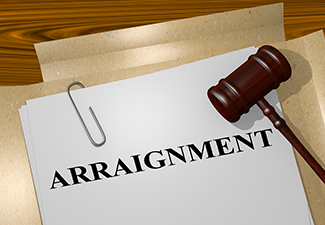What to Expect at Your Arraignment
Aug. 18, 2023
 If you are facing criminal charges, it is critical for you to understand what to expect throughout the criminal justice process, including an arraignment, which is essentially your first appearance in court. Many people make the mistake of underestimating the role of an arraignment in their criminal case, but this court proceeding can actually set the tone for the way the rest of the process will go.
If you are facing criminal charges, it is critical for you to understand what to expect throughout the criminal justice process, including an arraignment, which is essentially your first appearance in court. Many people make the mistake of underestimating the role of an arraignment in their criminal case, but this court proceeding can actually set the tone for the way the rest of the process will go.
As a criminal defense attorney at the Law Office of Joseph M Pacella, I understand the stress that comes with criminal charges. From the moment you call my office, I will work tirelessly to help you fight for the best possible resolution of your case. My office is located in Springfield, Massachusetts, but I provide compassionate and fierce advocacy to clients throughout Western and Central Massachusetts, including Westfield, Palmer, Amherst, and Northampton.
What Is an Arraignment?
As mentioned earlier, an arraignment is the defendant’s first appearance in court and the initial hearing in the criminal justice process. The main purpose of the arraignment hearing is to determine how the defendant wishes to proceed with their case.
When Does the Arraignment Take Place?
If you were arrested on suspicion of committing a crime in the state of Massachusetts, your arraignment will usually take place the next business day. Unlike other states, Massachusetts law does not set a specific deadline for when the arraignment must occur. However, according to the official website of the Commonwealth of Massachusetts, the Commonwealth’s case law requires an arraignment to take place “as soon after arrest as is reasonably possible.”
What Should You Know Before the Arraignment?
It is strongly recommended that you discuss your situation with an experienced criminal defense attorney before your arraignment takes place. The attorney will advise you of your rights and help you understand how your plea will affect your case. Keep in mind that the arraignment is your first appearance in court, which is why it is critical that you have qualified legal representation at this stage.
What Occurs at the Arraignment?
During the arraignment, the charges are read out loud to the defendant. Afterward, the defendant is asked how they plead. A plea is essentially the defendant’s formal response to the charges filed against him/her. At your arraignment, you have the right to plead guilty, not guilty, or no contest.
If you plead no contest or guilty, your case will proceed to sentencing. Essentially, it means that you are convicted of the crime and will face punishment. If you plead not guilty, however, your case will proceed to the next stage of the criminal justice process, which is usually a pretrial hearing. You might want to consult with an attorney before entering a plea to ensure that you make an informed decision about how to proceed with your case.
Do I Need an Attorney for the Arraignment Process?
An arraignment is the first time you appear in court and can set the tone for the rest of your case. Each case is unique, which is why you may not fully understand what to expect at your arraignment. Having legal counsel at this stage of your case can help you understand the best course of action. Going to your arraignment without legal representation is like trying to shoot a target in the dark.
An attorney can help you prepare for what’s to come and ensure that your rights are protected at all stages of the criminal justice process. When preparing for your arraignment, an attorney can discuss the potential outcomes of your case and what pleading guilty, not guilty, or no contest would mean in your particular situation.
Keeping You Informed Every Step of the Way
With proper preparation, you can feel more confident walking into your arraignment hearing. At the Law Office of Joseph M Pacella, I am here to assist you with everything you need and keep you informed every step of the way. As your legal counsel, my goal is to help you understand your plea options and minimize your risk of making a negative impression on the court. Get in touch today for a free case evaluation.
